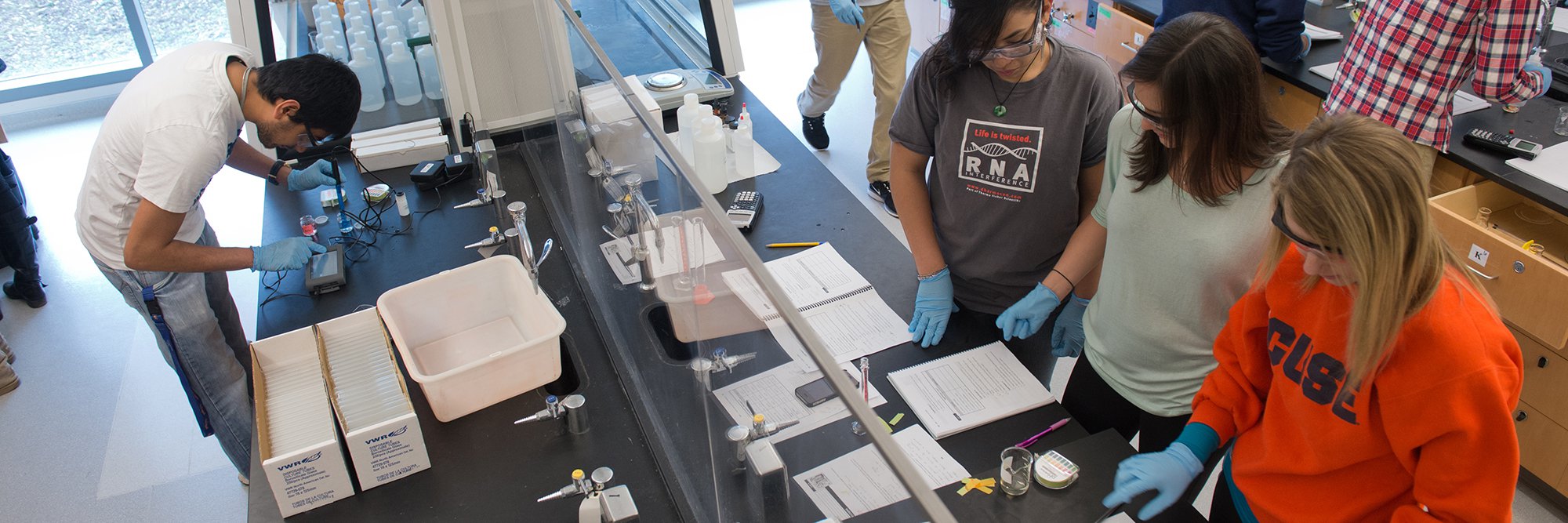Pre-Professional Competencies

Pre-Professional Competencies
We encourage all students to pursue enrichment opportunities that will develop self-capacity that is relevant to your chosen healthcare field. Think ahead. For instance, physicians must maintain six competencies, and these are largely applicable to all healthcare fields:
- Practice-based Learning and Improvement
- Patient Care and Procedural Skills
- Systems-based Practice
- Medical Knowledge
- Interpersonal and Communication Skills
- Professionalism
To break this down further, pre-medical students are expected to show evidence of development of Core Competencies within four domains:
- Interpersonal (service, social, cultural, teamwork, oral communication)
- Intrapersonal (ethical, reliable/dependable, resilient/adaptable, shows capacity for improvement)
- Thinking & Reasoning Skills (critical, quantitative, scientific inquiry, written communication)
- Science Competencies (living systems, human behavior)
What this means is that what "today" holds is setting priorities. Consider how your academic and enrichment activities will help foster these relevant and expected skills. Think about your four years at Syracuse and beyond. What choices will you make that will lend well to your growth and development?
Experiential Learning
Clinical
Clinical awareness is extremely important to professional schools. If you haven’t been "inside the walls" where you were able to witness and participate in healthcare delivery, professional schools may hesitate, and feel skepticism that you understand the career path you aspire to. To show your dedication to and motivation for a career in medicine, you should:
- Volunteer at a healthcare facility
- SUNY Upstate
- Crouse Hospital
- Veterans Administration Medical Center
- Syracuse Community Health Center
- Obtain training and potentially certifications
- Actively participate in clinical opportunities
Campus and Community Involvement
There are many student organizations at Syracuse University that are oriented to congregate pre-health students. The Mary Ann Shaw Center for Public and Community Service is an instrumental resource in helping students align their interests with volunteer opportunities in local community agencies. Some academic programs at Syracuse, like public health or public policy, often incorporate experiential learning into their course curriculum.
Domestic & International service learning
Not all volunteer endeavors need to be clinical. Students benefit immensely from dedicating their time to community agencies, here and abroad. Students have gained immeasurable skills by volunteering for local non-profits that serve constituent needs in public health, education, refugee resettlement, and youth mentorship and recreational services.
During gap years, students may serve for Teach for America, City Year AmeriCorps, the Peace Corps, or other domestic and international organizations. When serving abroad, it is important to vet the program you are participating in. There is ethical controversy about what students are allowed and entitled to do in foreign countries; be mindful that your service abroad is about responsibly meeting the needs of the population; not just serving your own interests, growth, and development.
Research & Scholarship
Research is everywhere. It exists in public health, sociology, anthropology, English literature, psychology, science, linguistics—in other words, if you are interested in research, find a position in a research project that studies something you care about. At Syracuse, there are multiple avenues to research—for pre-health, these are most popularly in the sciences, psychology, and neuroscience—but there are a myriad of current research projects related to health policy, public health initiatives, socio-economic healthcare disparities, drug delivery, bioengineering, and post-traumatic stress syndrome.
See more: Syracuse University The SOURCE
If you wish to extend your experience beyond campus, Syracuse students have often pursued research at:
- Upstate or nearby research facilities
- Summer SURF or SURP programs
- Summer Health Professions Education Program (SHPEP)
- Northeast Regional Alliance (NERA) Medprep Program
During gap years, some students enjoy obtaining clinical or laboratory research positions at institutions all across the United States or abroad.
